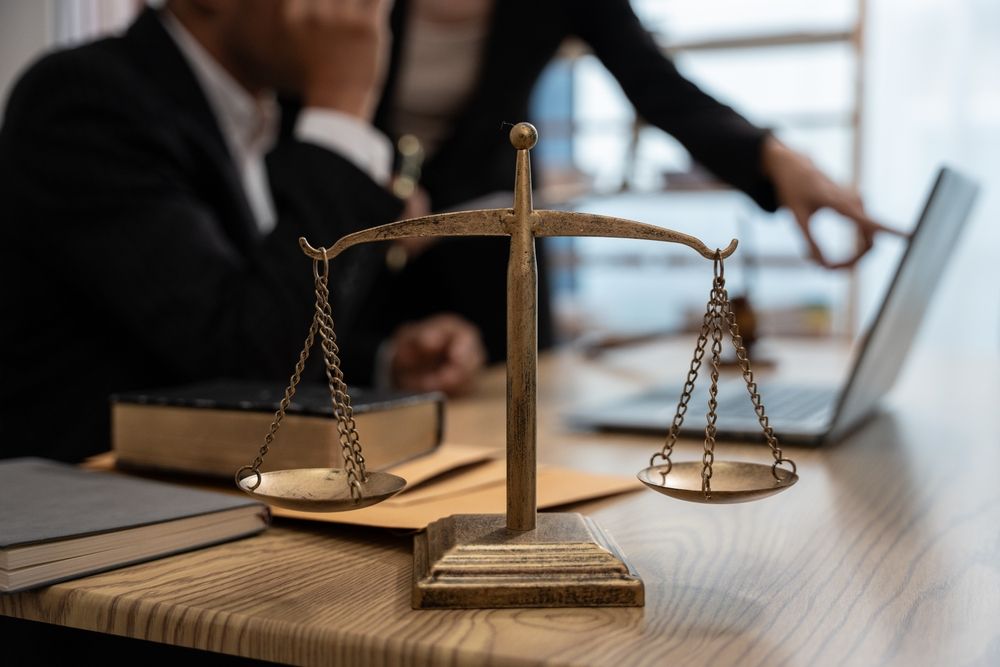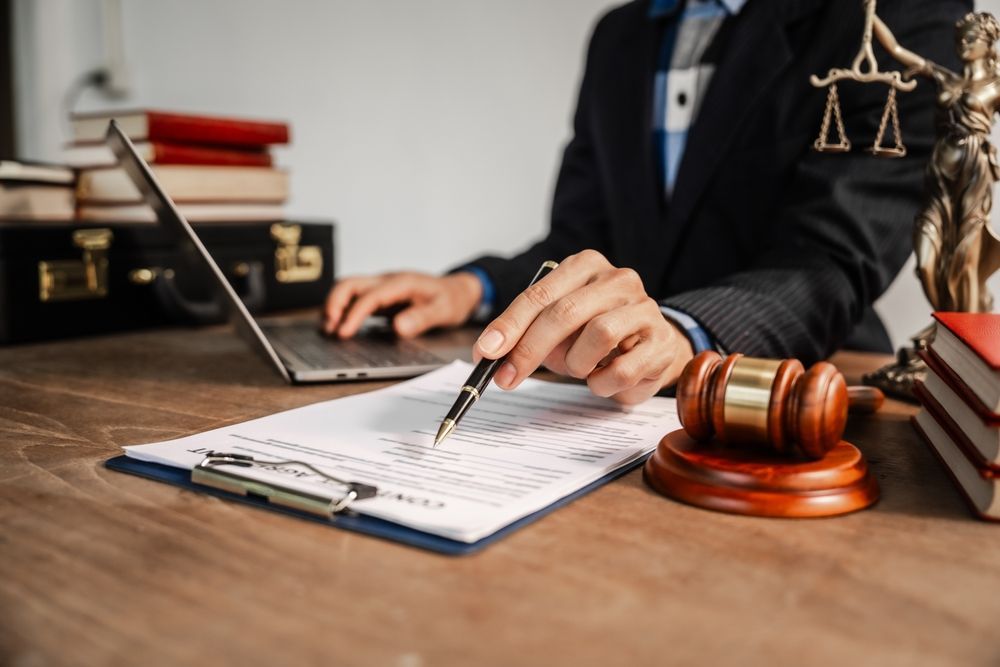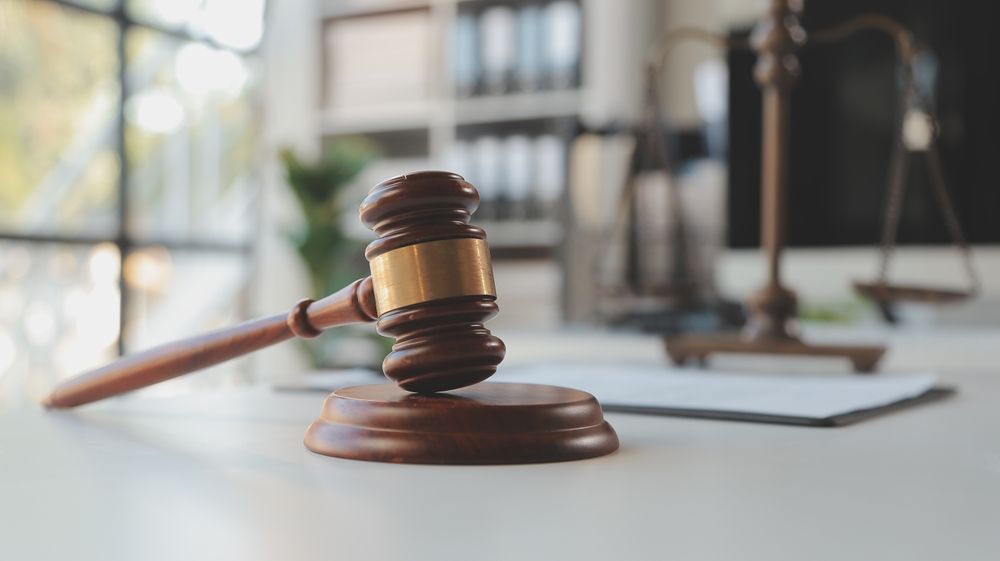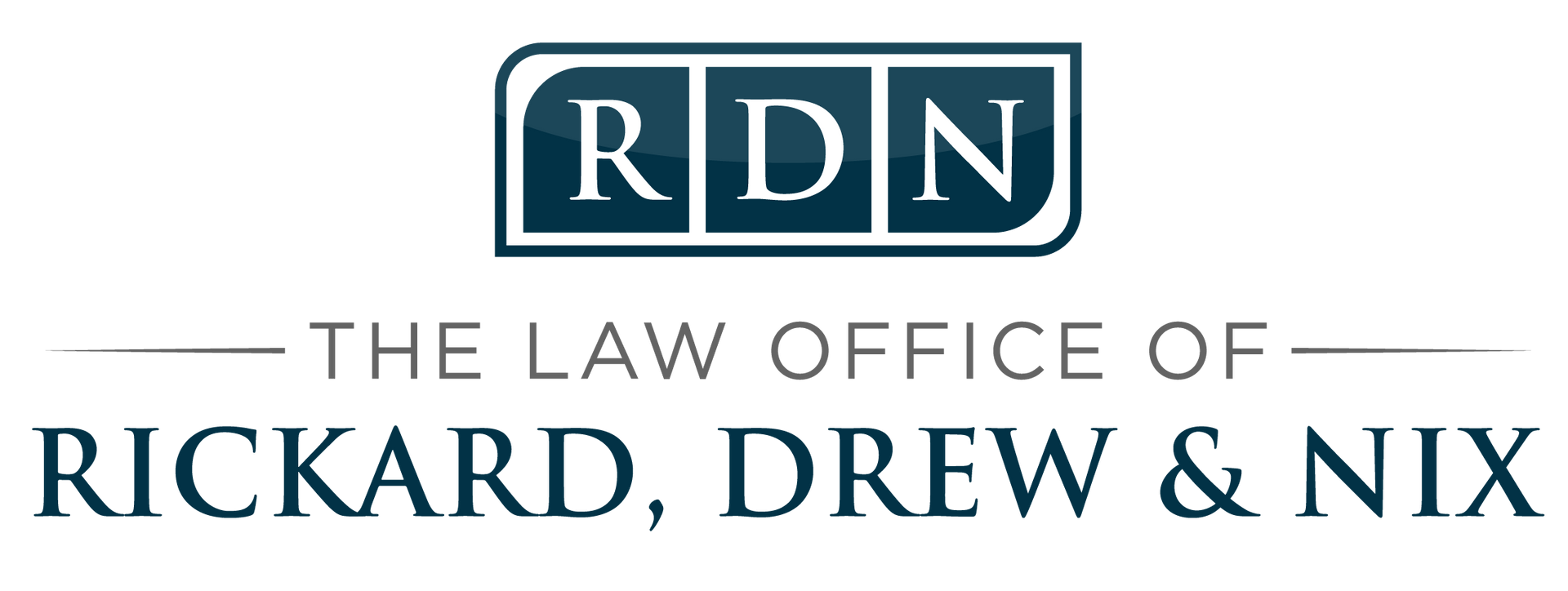What to Expect When Navigating the Atlanta Court System for Accident Claims
Filing a claim and dealing with a complicated maze of legalese is the last thing car accident victims want to deal with. In the midst of painful injuries, property loss, lost work, and medical bills, they also must confront a leviathan called the legal system. What these victims need is a seasoned guide to help them understand accident law, the claims process, and what to expect from their accident claim.
Car accidents can create confusion and stress when seeking compensation for injuries. Understanding the Atlanta court system for accident claims is vital for understanding this process. This article will address how to file a claim, manage court appearances, and strategies for a successful outcome. Readers will learn how to effectively address common challenges, providing a clearer path toward securing fair compensation as a plaintiff in Georgia personal injury cases. Engaging with this content will equip individuals with the knowledge to overcome obstacles they may face during this legal journey.
Understanding the Atlanta Court System for Accident Claims
The Atlanta court system plays a vital role in handling various accident claims, including car accidents and auto accident cases. It is essential to understand the structure of these courts, the types of cases processed, key participants involved, and the judges' roles. Moreover, the reasoning behind common verdicts and the possibility of appeals in an appellate court are critical factors for those seeking compensation for injuries, such as spinal cord damage. Each aspect will provide a clearer picture of what to expect throughout the litigation process.
Overview of the Atlanta Court Structure
The Atlanta court system comprises several layers, primarily including state courts and the supreme court of Georgia. Personal injury cases, such as accident claims, typically start in the state court, where judges handle a variety of cases from civil disputes to criminal matters. Understanding the hierarchy and specialization of these courts can streamline the process for individuals seeking compensation for injuries, such as those sustained in auto accidents.
In Georgia, the statute of limitations plays a critical role in filing an accident claim, generally allowing two years from the date of the injury. Failing to submit the claim within this timeframe can lead to dismissal cases, emphasizing the importance of prompt legal action. Knowledge of the court structure, alongside awareness of potential legal malpractice, equips individuals with the necessary information to file their claims successfully and make sure they are advocating for their rights effectively.
Types of Cases Handled by Atlanta Courts
Atlanta courts address a wide range of cases, particularly focusing on personal injury lawsuits related to accidents. These cases often stem from motor vehicle accidents, workplace incidents, and slip-and-fall situations. Lawyers representing clients will construct a cause of action to demonstrate how the injury occurred and establish liability, making sure that victims receive the compensation they deserve for their suffering.
Moreover, Atlanta courts also handle cases involving fraud, which may intersect with personal injury claims. For instance, if an insurance claim is under scrutiny for fraudulent activity, an attorney may need to defend against these allegations while pursuing legitimate claims for accident victims. Understanding such cases can empower individuals to better advocate for their rights and work within the court system effectively.
Key Players in Accident Claims
When pursuing an accident claim in Atlanta, several key players fill important roles in the legal process. Attorneys serve as advocates for car accident victims, guiding them through the complicated world of legal documentation and contracts. They help clients gather vital evidence needed to support their claims, making sure that all necessary paperwork is prepared accurately and submitted on time, which is essential to prevent delays and preserve legal rights.
Insurance adjusters are another crucial component of accident claims. They investigate the details surrounding the incident, assess the evidence provided, and determine the appropriate fee for a claim settlement. Car accident victims must understand the adjusters' role and approach, as this can significantly influence the outcome of their claims. Engaging with knowledgeable legal counsel is advisable to manage these interactions effectively and advocate for fair compensation.
The Role of Judges in Accident Cases
Judges play a crucial role in resolving accident cases within the Atlanta court system. They are responsible for overseeing the proceedings, making sure that all aspects of the case adhere to legal standards and procedures. In accidents involving negligence, judges evaluate the evidence presented by both parties, including claims made against an insurance company. Their decisions guide the outcomes of these cases, significantly impacting the compensation available to victims, especially in difficult situations requiring thorough legal scrutiny.
Moreover, judges often encourage open communication between the parties involved, facilitating negotiations that may lead to settlements. For claimants pursuing compensation, it is important to understand the judge's perspective on liability and damages when assessing the merits of the case. Such insights can prove essential during a free case evaluation, where individuals can seek initial guidance on their situation. Ultimately, working through the judicial process with knowledge of a judge's role empowers accident victims to better advocate for their rights and interests in court.
Common Outcomes in Accident Litigation
When dealing with the Atlanta court system for an injury lawsuit, understanding potential outcomes is essential. Many personal injury cases resolve through settlement agreements before reaching a courtroom. This dispute resolution process often involves negotiation between the victim's attorney and the insurance company, allowing for a quicker resolution and financial compensation without the uncertainties of a trial.
If a settlement does not occur, cases may proceed to trial, where judges in the judiciary will assess the evidence and determine liability. The verdict can result in varying damages awarded to the injured party, highlighting the importance of presenting a solid case. Victims can benefit from seeking knowledgeable legal counsel to effectively work through these processes and secure just compensation for their injuries.
How to File an Accident Claim in Atlanta
Filing an accident claim in Atlanta involves several critical components that victims must understand. This section covers required documentation for filing, the step-by-step process to navigate, and key deadlines to remember. Additionally, it addresses fees involved in the process and common mistakes to avoid, making sure claimants are well-equipped in personal injury law to prove witness statements and establish liability insurance during arbitration.
Required Documentation for Filing
Filing a car accident claim in Atlanta requires specific documentation to ensure the process aligns with the jurisdiction's regulations. Essential documents typically include a formal complaint detailing the incident, evidence of damages sustained, medical records, and any police reports related to the car accident case. Properly preparing these documents is crucial, as they support the claim and establish the basis for seeking compensation.
In cases involving unique situations, such as nursing home accidents, additional documentation may be necessary. Claimants should gather witness statements, photographs of the scene, and any relevant correspondence with insurance companies. Having these materials organized and ready can streamline the filing process and significantly enhance the chances of a favorable outcome in Atlanta's court system.
Step-by-Step Process of Filing a Claim
To initiate the process of filing an accident claim in Atlanta, an individual must first gather all necessary documentation related to the auto accident. This includes medical records detailing injuries sustained, police reports stating the incident's particulars, and any evidence that demonstrates liability, such as photographs or witness statements. By making sure these documents are well-organized, individuals can effectively support their claim when presenting it in court, whether against a defendant in a personal injury case or addressing issues that may arise under premises liability.
After compiling the required documents, the next step involves drafting and submitting a formal complaint to the appropriate court, outlining the details of the breach of contract or negligence. The filing should clearly state the damages sought and provide a narrative of how the accident occurred. This structured approach not only aids in making the case clear for the court but also sets the stage for possible negotiations or court hearings if the matter escalates.
Key Deadlines to Remember
When filing an injury claim in Atlanta, it is crucial to adhere to the statute of repose, which generally allows two years from the date of the accident to submit a claim for compensation. Missing this deadline can result in the dismissal of the case, leaving individuals without any recourse for their injuries. In addition to this primary deadline, potential appellants must also be aware of the time limits associated with filing an appeal, which typically follows the conclusion of a trial if an unfavorable verdict is reached.
Another important aspect to consider is the role of health insurance in the claims process. After an accident involving a vehicle, individuals often seek medical treatment that may be covered by health insurance. It is essential to understand how these benefits interact with personal injury claims, as improper use of health insurance can complicate the financial recovery process. Staying informed about these key deadlines and procedures improves an individual’s ability to successfully work within the Atlanta court system.
Understanding the Fees Involved
Understanding the fees involved in filing an accident claim in Atlanta is essential for individuals seeking compensation for their injuries. Typically, most lawyers work on a contingency fee basis, meaning they receive a percentage of the settlement or court award if the case is successful. This arrangement allows clients to retain legal representation without upfront costs, alleviating some financial pain associated with medical expenses or lost wages stemming from incidents like dog bites.
While working with a reputable lawyer can be beneficial, it is crucial to discuss potential fees and other expenses upfront to avoid surprises later on. Legal fees usually cover various services, including case preparation and negotiations. Additionally, court costs related to filing the claim may apply, reminding claimants of the importance of adhering to the statute of limitations to preserve their rights and maximize their chances of a successful outcome.
Common Mistakes to Avoid While Filing
One common mistake individuals make while filing an accident claim in Atlanta is delaying the submission of necessary documents. Such delays can lead to missed deadlines imposed by the statute of limitations, particularly for cases related to car accident injuries or property damage. Promptly gathering evidence and submitting the claim is crucial to preserving one's rights and enhancing the chances of a successful outcome in court.
Another frequent error is underestimating the complexity of claims, especially those involving multiple parties or scenarios such as assault or product liability. In cases where victims pursue a class action lawsuit or face opposition from seasoned insurance adjusters, it's essential to have a clear understanding of the legal process. Engaging professional legal counsel helps individuals avoid pitfalls and manage the intricacies of the litigation process effectively, maximizing potential compensation.
Navigating Court Appearances in Atlanta
Understanding what to expect during court appearances in Atlanta is crucial for individuals involved in personal injury claims. This section will cover the details of the first court appearance, preparation for testifying, the importance of having legal representation, and how to interact with opposing counsel. It will also address procedures following the hearing, helping claimants feel informed and ready for their experiences in the Georgia court system.
What to Expect in Your First Court Appearance
In the first court appearance for an accident claim, individuals can expect a structured environment where the judge reviews the case details. This appearance typically involves a brief discussion about the nature of the claim, and parties may address motions filed by either side. For those injured in a slip and fall incident or construction-related accidents, having a personal injury lawyer present can provide crucial guidance and support during this initial step in the legal process.
How to Prepare for Testifying in Court
Preparing for testifying in court requires individuals to understand the specifics of their case, particularly in the context of a Georgia car accident. Those involved in the legal process should review their own accident details, including the circumstances leading to the incident and the impacts on their lives, such as medical expenses or emotional distress. Being informed about their insurance policy and any potential claims, including those involving bad faith tactics from an insurance company, will further help them articulate their position clearly during testimony.
In the case of a wrongful death claim, it is vital to approach testimony with sensitivity and clarity. Individuals should be ready to discuss not only the events surrounding the accident but also the profound personal loss they have faced. Practicing responses to possible questions and working closely with a legal representative can bolster confidence, allowing witnesses to present their experiences effectively without becoming overwhelmed by the situation.
The Importance of Legal Representation
Legal representation is crucial when dealing with the Atlanta court system for accident claims, particularly in tort law cases. Attorneys bring specialized knowledge and skills to the table, helping victims understand their rights and responsibilities. This expertise can be especially beneficial in traffic accident cases or when claims intersect with property disputes, where legal glitches may arise.
An experienced attorney not only guides clients through the legal process but also advocates for their interests during court appearances. For instance, in situations involving claims related to child custody or other sensitive matters, a lawyer's representation can provide a strong foundation for a case, offering necessary support when emotions run high. This professional assistance can significantly influence the outcome of a claim, enabling individuals to pursue just compensation and navigate challenges effectively.
Interacting With the Opposing Counsel
Interacting with opposing counsel during a personal injury lawsuit in Atlanta requires a strategic approach. This includes being respectful and professional, as this behavior can influence how the judge perceives each party. For instance, in cases involving hit and run incidents, clear and focused communication about the damages suffered can lead to more productive discussions, potentially paving the way for mediation before going to trial.
When facing opposing counsel, it is essential for individuals to be well-prepared with all relevant evidence and documentation. This preparation not only strengthens their position but also allows for effective negotiation. Engaging constructively can lead to advantageous outcomes, including a settlement that minimizes the need for extensive court appearances, saving both time and resources in the pursuit of justice.
Post-Hearing Procedures
Following a court hearing for an accident claim, individuals should anticipate several critical post-hearing procedures. The judge may take time to review all evidence presented during the trial before issuing a decision. Understanding this timeline is essential, as it often influences the follow-up strategies, including further negotiation efforts between parties involved, especially if they aim to reach a settlement without continuing litigation.
Once a verdict is reached, the next steps hinge on the outcome delivered by the jury or judge. Should the ruling favor the injured party, the claimants can begin the process of seeking compensation. Conversely, if the verdict is unfavorable, exploring options for an appeal might be advisable, given that specific procedures and time limits apply. Engaging with legal counsel during this phase is critical, as they can guide individuals through either the negotiation or appeal process effectively, making sure that all rights are protected throughout the transition from the courtroom to resolution.
Strategies for Successful Accident Claims
Building a strong case for accident claims in Atlanta involves several critical steps. First, gathering supporting evidence is essential to establish fault, including documentation of injuries and circumstances surrounding the incident. Witness testimonies can provide crucial backing for claims of pain and suffering, while utilizing expert witnesses effectively can further validate arguments, especially in cases involving felony actions or potential punitive damages. Additionally, mastering negotiation strategies when drafting a demand letter can significantly influence settlement outcomes.
Building a Strong Case
Building a strong case in personal injury cases within the Atlanta court system requires comprehensive documentation and effective evidence collection. Victims must gather pertinent information such as medical records, photographs of the accident scene, and eyewitness statements. This thorough approach strengthens the argument for liability and may also facilitate alternative dispute resolution processes, offering opportunities for settlements outside of court.
A strategic narrative that details the events leading to the injury can significantly influence the case outcome. By articulating the impacts of the accident, claimants can demonstrate the full extent of their damages, both physical and emotional. Engaging an experienced attorney during this phase can provide invaluable guidance, guaranteeing that the gathered evidence supports the claim while effectively presenting it to the involved parties and potentially easing negotiations.
Gathering Supporting Evidence
Gathering supporting evidence is a critical step in pursuing accident claims within the Atlanta court system. Victims should compile essential documents such as medical records, police reports, and photographs of the accident scene, as these will play a significant role in establishing liability. By systematically collecting this evidence, individuals can strengthen their case and present a compelling narrative when discussing their claim with legal representatives or during court proceedings.
In addition to traditional documentation, eyewitness statements can serve as invaluable pieces of evidence in personal injury cases. These testimonies offer firsthand accounts of the incident, helping to clarify how the accident occurred and who may be at fault. Additionally, consulting with expert witnesses can lend additional credibility to the claims, especially in complicated cases. Engaging with knowledgeable legal counsel throughout this process guarantees that all evidence is gathered effectively and presented in a manner that enhances the likelihood of a favorable outcome in court.
The Importance of Witness Testimonies
Witness testimonies play a crucial role in personal injury cases within the Atlanta court system. They provide essential accounts of the events surrounding an accident, helping to clarify the circumstances and establish liability. For instance, if a car accident occurred at a busy intersection, eyewitnesses can offer insights about the actions of the drivers involved, which can significantly impact the case's outcome.
Furthermore, strong witness statements can reinforce the claims of an injured party by validating their perspective on the incident. When accident victims can present firsthand accounts that align with their narratives, it strengthens their position during negotiations or trial proceedings. Engaging experienced legal counsel can greatly assist in identifying, preparing, and presenting these testimonies to effectively support a case in court.
Utilizing Expert Witnesses Effectively
Utilizing expert witnesses effectively can significantly bolster personal injury claims in the Atlanta court system. These professionals bring specialized knowledge that helps clarify complex aspects of a case, such as medical injuries or accident reconstruction. For instance, a medical expert can provide insights into the extent of injuries sustained, linking them directly to the accident, which is crucial for establishing liability and justifying the claim for damages.
Incorporating expert testimonies into the legal strategy allows claimants to present a compelling narrative that substantiates their position. Attorneys should carefully select experts whose credentials align closely with the specific circumstances of the case. This strategic choice not only enhances credibility in the eyes of the court but also engages jurors by illuminating intricate details that may not be clear to the average person. By leveraging the expertise of these witnesses, accident victims can improve their chances of securing appropriate compensation during the litigation process.
Settlement Negotiation Tips
Effective settlement negotiations are critical in personal injury claims within the Atlanta court system. Claimants should start by determining a reasonable compensation amount based on medical expenses, lost wages, and pain and suffering. This initial assessment empowers victims to present a strong case during negotiations, making sure they advocate for their rights while remaining realistic about potential outcomes.
Additionally, maintaining open communication with the opposing party can significantly enhance negotiation efforts. Claimants should approach discussions respectfully, presenting clear and organized evidence to support their demand. This strategic approach fosters a collaborative environment, making it easier to reach an agreement that satisfies both parties and resolves the claim efficiently, ultimately saving time and resources amidst the complexities of the legal process.
Common Challenges in the Atlanta Court System
Working within the Atlanta court system for accident claims presents several common challenges. Victims may encounter delays in the court process, which can prolong resolution. Understanding insurance company tactics is essential, as these firms often use various strategies that can complicate claims. Additionally, handling complications in case evidence and navigating appeals may arise. Finding legal help is crucial to overcome these obstacles effectively.
Dealing With Delays in the Court System
Delays in the Atlanta court system can significantly impact accident claims, often extending the time it takes to achieve resolution. Factors such as a busy court schedule, procedural complications, and the availability of key witnesses can contribute to these delays. For accident victims, understanding that these obstacles are common can help manage expectations and provide a clearer timeline for their cases.
To overcome potential delays effectively, individuals pursuing accident claims should remain proactive in their approach. This includes regular communication with their legal counsel about case progress and being prepared to address any procedural issues promptly. By staying informed and engaged, claimants can enhance their chances of a timely resolution while minimizing the frustration that often accompanies delays in the court system.
Understanding Insurance Company Tactics
Understanding insurance company tactics is vital for individuals pursuing accident claims in Atlanta. Insurance companies often employ strategies designed to minimize payouts, which can include assessing claims from a financial perspective rather than a human one. Victims may find themselves confronting adjusters who use pressure tactics or attempt to settle claims quickly with low offers, aiming to resolve the matter without fully addressing the claimant's needs or the extent of their injuries.
Additionally, insurance representatives may challenge the validity of claims by requesting extensive documentation or questioning the details of the incident. To effectively confront these challenges, individuals are encouraged to work closely with qualified legal counsel who can help them understand their rights and advocate on their behalf. This support can guarantee that claimants receive the just compensation necessary for their recovery, while also countering tactics that may otherwise hinder their case.
Handling Complications in Case Evidence
Handling complications in case evidence can pose significant challenges for individuals pursuing accident claims in Atlanta. Disputes may arise regarding the validity or relevance of different pieces of evidence, including medical records, accident reports, and witness statements. By working closely with a knowledgeable attorney, claimants can make sure all evidence is properly collected and presented, bolstering their case and enhancing the likelihood of a favorable outcome.
Moreover, unforeseen complications can emerge from missing or insufficient evidence, which may hinder the progress of a claim. For instance, if crucial video footage of the accident is unavailable or has been compromised, it may impact the ability to establish liability. Legal counsel can help counter these challenges and develop alternative strategies to strengthen the case, such as utilizing expert witnesses or gathering additional supporting documentation, ultimately guiding clients toward a successful resolution in the Atlanta court system.
Navigating Appeals in Accident Claims
Navigating the appeals process in accident claims within the Atlanta court system can present unique challenges for individuals seeking justice after being injured. When a verdict is not in favor of the claimant, understanding how to file an appeal is crucial. This process involves submitting an application that outlines the legal reasons for contesting the earlier decision, which can require a detailed examination of trial records and expert legal insight.
Finding Legal Help for Your Case
Finding qualified legal help is essential for individuals navigating the Atlanta court system for accident claims. A skilled attorney possesses the expertise needed to guide clients through legal processes, providing support with documentation, evidence collection, and overall case strategy. By having knowledgeable legal representation, clients can better understand their rights, enabling them to make informed decisions regarding their claims and enhancing their chances of securing the compensation they deserve.
When seeking legal assistance, individuals should look for characteristics such as experience in personal injury law and a proven track record in handling accident claims within the Atlanta courts. An effective attorney will actively listen to their clients' concerns, helping them feel supported throughout the litigation process. By establishing clear lines of communication and creating a solid case, legal counsel can relieve some of the burden clients face, allowing them to focus on recovery while pursuing justice for their injuries.
Resources for Accident Claimants in Atlanta
Accident claimants in Atlanta can access various resources to support their legal journey. Legal aid and support services can provide essential guidance, while community organizations offer additional assistance. Important contacts for accident claims, along with online tools and databases, are invaluable for navigating the process. Educational workshops and seminars further equip individuals with knowledge, ensuring they are prepared for each step of their claims.
Legal Aid and Support Services
Legal aid and support services are crucial for accident claimants in Atlanta, offering valuable resources that can ease the legal process. These services often provide assistance with understanding legal rights, navigating court procedures, and compiling essential documentation necessary for filing claims. Claimants facing financial hardships may find these resources especially helpful in accessing qualified legal representation without incurring high costs.
Organizations providing legal assistance also host workshops and informational sessions, equipping individuals with knowledge about the intricacies of accident claims within the Atlanta court system. By utilizing these resources, accident victims can gain insight into effective case strategies and foster connections with legal professionals dedicated to advocacy. This support not only helps claimants feel more confident in pursuing their cases but also enhances their chances of obtaining fair compensation for their injuries.
Community Resources and Organizations
Community resources and organizations in Atlanta play a significant role in supporting accident claimants throughout their legal journeys. Many local organizations offer workshops and informational sessions to educate individuals about their rights and the court system. These resources not only provide essential guidance on preparing for personal injury cases but also connect claimants with experienced individuals who can share practical insights into effective strategies in the court process.
Additionally, local non-profits often provide services aimed at assisting accident victims facing financial difficulties. These organizations may help connect individuals with legal aid, ensuring they receive support without overwhelming costs. By leveraging community resources, claimants can navigate the complexities of accident claims more efficiently, ultimately improving their chances of achieving fair compensation for their injuries.
Important Contacts for Accident Claims
Accident claimants in Atlanta benefit greatly from knowing the important contacts that can aid them throughout the legal process. Local bar associations often provide referrals to experienced personal injury attorneys who understand the intricacies of accident claims and can offer tailored guidance based on each individual’s situation. Additionally, victims can connect with healthcare providers who can document injuries and provide essential testimony during the claim process, further supporting the case in court.
Furthermore, law enforcement agencies can be crucial contacts for accident claims, as they provide police reports that detail the incident. Claimants should also consider reaching out to local advocacy groups that assist accident victims, as these organizations can offer valuable resources and additional contacts for legal support. Understanding who to turn to during the claims process enhances an individual's ability to navigate the Atlanta court system effectively and secure fair compensation for their injuries.
Online Tools and Databases
Accident claimants in Atlanta can leverage various online tools and databases to enhance their understanding of the court system and streamline the claims process. Resources such as the Georgia Composite State Board of Workers' Compensation website provide essential information regarding filing procedures, regulations, and relevant deadlines. Claimants can access interactive forms and guidance that simplify the complexities often associated with personal injury claims.
Additionally, platforms like the Georgia Courts website offer vital updates on case status, court schedules, and filing requirements, empowering claimants to stay informed throughout their legal journey. Utilizing these online resources not only aids individuals in efficiently managing their claims but also ensures they remain educated about their rights within the Atlanta court system. By familiarizing themselves with such digital tools, claimants can navigate their cases with greater confidence and clarity.
Educational Workshops and Seminars
Educational workshops and seminars serve as invaluable resources for accident claimants in Atlanta, providing essential information about the legal process involved in personal injury cases. These events often cover vital topics, including the court system's structure, the filing of accident claims, and understanding statutes of limitations. Attending these sessions empowers individuals to navigate their cases with greater confidence, ensuring they are informed about their rights and the necessary steps to secure compensation.
Moreover, participants in these workshops can benefit from real-life examples and expert insights from seasoned attorneys who specialize in personal injury law. This practical knowledge equips claimants with tools to effectively advocate for themselves, whether discussing evidence collection or negotiating with insurance companies. By engaging with legal professionals during these events, individuals can enhance their understanding of the complexities of accident claims, leading to more successful outcomes in the Atlanta court system.

Attorney Jessica Nix, Managing Partner
Jessica Nix is Managing Partner and a Personal Injury Attorney at the Law Office of Rickard, Drew & Nix in Atlanta, with more than 10 years of experience representing injury victims in courts across Metro Atlanta. She graduated cum laude from the University of Georgia School of Law, where she served as an editor of the Journal of Intellectual Property Law. Jessica is admitted to the State Bar of Georgia, is a member of the Georgia Trial Lawyers Association, and was named a Georgia Super Lawyers Rising Star for Personal Injury from 2017 to 2019. To speak with the Law Office of Rickard, Drew & Nix, schedule a free consultation today.



